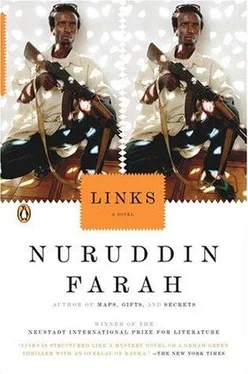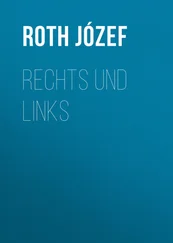Jeebleh released his friend and held him at a distance. “If you’re not the most priceless thing that has happened to me,” he said, “then I’m done for.”
Standing opposite Jeebleh in the brightness of noon, and at that moment looking like a clown without his makeup, Seamus said, “Allow me and my colleagues to get on with the business that’s brought us here, please!”
Jeebleh looked away, amused, and his eyes clapped on three cars being driven slowly in procession. One of the vehicles was the kind that dignitaries are chauffeured in, the others were ordinary sedans. He found himself reciting one of his favorite sentences from Alice’s Adventures in Wonderland and revising it in his head to make it serve his particular purposes. “I might just as well say that ‘I see what I hate’ is the same thing as ‘I hate what I see’!” he told Seamus.
Seamus imagined becoming as many-eyed as a peacock with designs on the object of his elusive desire, when he looked and saw what he too thought he hated — Caloosha. Never mind that he was dead or that this would be the last Seamus would see of him: his funeral cortege.
Now a jalopy came running ahead of the tail of dust following it. Qasiir and his friends stirred themselves into a more restless mood at the sight. With a dark mood clouding his forehead, Qasiir approached Jeebleh, prepared to receive his next instructions. But none was forthcoming.
“From the way the driver’s beating that heap,” Seamus said, “pushing it beyond its limits, you’d think he was late for his own funeral.”
“I wouldn’t wish to be early for mine either.” Jeebleh found it necessary to elaborate when Seamus looked at him inquiringly. He paraphrased for him the Somali proverb that the mother of a coward seldom mourns her son’s early death.
Jeebleh spoke in agitated whispers to Qasiir, suggesting that he and part of his posse drive to the site of Caloosha’s grave, and that a second, smaller group, headed by Qasiir’s deputy, remain behind. And what was Qasiir to do? He was to stay as low and as still as a dog tag lying where its owner had fallen. Qasiir went off in the battlewagon, excited like a hound scenting the closeness of its prey.
“Is this really what we want?” Seamus said.
“What do you think I’m doing?”
“Do you want a shoot-out?”
QASIIR CAME BACK SHORTLY, WEARING A NEW PAIR OF MIRRORED SHADES through which you couldn’t see his eyes but he could see yours. Jeebleh was amused at his own reflection in the shades, and concluded that he had changed a lot in the short time spent in the city of his birth. Not that he bothered to consider the nature of the changes, or if they were to be permanent. He tethered his serious side to the job at hand, requesting that Qasiir kindly remove the shades, then asking where he had gotten them.
Qasiir used a mix of voices — imitation Italian; Arabic, presumably learned from Egyptian films; and Xamari dialect — to answer. A muscular dude, he said, had been wearing the shades; he had acted Hercules-strong and macho. Just to prove the dude wrong, Qasiir had provoked him into a fight, then peeled the shades off his face, threatening to kill him for them if necessary. Jeebleh asked who “the dude” was.
“He had plenty of muscles, but he wasn’t strong.”
Jeebleh recalled being injected with the liquid solution by a man who met this description. At Jeebleh’s prompting, Qasiir explained that it was no use carrying a fancy gun if you were going to chicken out at the last minute, was there? “The dude’s gun was for show, and he didn’t deserve to keep it, so I took it away from him, to help him, you see. Now I have his fancy gun and his shades too.”
Jeebleh felt he was being taken to a territory outside his experience. Not only was Qasiir running rings around him, he, Jeebleh, was becoming more dependent on the young man. Yet he was no more out of kilter than a man walking with his shoelace untied. How much of a change had been wrought on him by living through these experiences? Did it mean — and this was very worrying to him — that Caloosha had won him over to his way of doing things, crudely and cruelly? Jeebleh asked Qasiir how many mourners were at the graveside, and if he could tell him who they were.
“Five or six, maximum.”
“Including the guy with the shades?”
“And two military types.”
“Who else?”
“Two women.”
“One of them his wife?”
“Go see for yourself,” Qasiir said.
He knew then he would want to see for himself!
After a pause, Qasiir said, “It was no big deal.”
“How do you mean?”
“Cool Caloosha no longer cool!”
“Was Af-Laawe there?”
Qasiir was probably being cheeky, or perhaps knew more than he was prepared to let on, because he said, “They’ll be burying him, all right!”
You could’ve beaten Jeebleh down with a single feather from a vulture, when he noticed several perched in the mango tree, restlessly surveying the extent of the cemetery. “Let’s go and see what’s what!” he told Qasiir.
Jeebleh took pride of place in the battlewagon, next to the driver, and acted as though he were the commander of a fighting unit. With the heavy gun mounted on the vehicle, they were mobile, fast, and deadly; he feared no one. It took the battlewagon a few minutes to cover the distance between his mother’s grave and where Caloosha’s was now being dug. It was a sad affair: two miserable-looking military types in dirty fatigues, their bodies unwashed, eyes sore from sleeplessness, their cheeks bulging from the qaat they kept chewing; two women, looking rather like whores paid to mourn; and the muscular man who had injected the solution into his thigh. Jeebleh didn’t give in to the temptation of letting Qasiir and his friends turn “the dude” into inedible mince, something they would gladly have done if he had asked them. Nor would he inquire what had become of Af-Laawe, the muscleman’s paymaster; he assumed that they had fallen out with each other, as all thieves do sooner or later. For all he cared, Af-Laawe might have died at the man’s hands.
From the way the gravediggers took their time, you would’ve thought they were performing a thankless task — as if they knew they wouldn’t be remunerated for their labor. And where was Caloosha’s corpse? Wrapped in a white sheet, it lay close by, still, the freshly dug earth accentuating its sorrowful state. Unburied, his corpse struck Jeebleh as being sequestered in the aloneness of a man whom even hell wouldn’t deign to receive.
Good breeding made Jeebleh say a few words for the martyred dead anyway. And before long, he got back into the battlewagon, ready to return to Seamus and the other labors. He planned ahead to the moment when the sepulcher would be finished, and he would call on Shanta, to prepare for the alla-bari party. He wanted to arrange the purchase of the cow to be slaughtered at the next day’s feast.
ONCE THE TOMB HAD BEEN COMPLETED TO HIS AND SEAMUS’S SATISFACTION, Jeebleh said he wanted to be alone there, to commune with his mother’s troubled spirit. He was not a religious man, nor given to saying his prayers or fasting. But he wished to appease her spirit in the best way he could, by consecrating the tomb with a prayer. He knelt down, and saying a brief prayer, imagined two dark angels with blue eyes ceremoniously arriving to interrogate his mother, newly reburied. Sadly, the old woman was unable to provide the right answers to the angels. They were about to order the ground to close in upon her, when she recovered in time to recite the appropriate responses. Whereupon her grave expanded to seventy times seventy paces in length and seventy times seventy in breadth, and the light in the tomb came on. Approving of her, the angels spoke in unison: “Sleep in peace, then, with Allah’s blessing!”
Читать дальше












